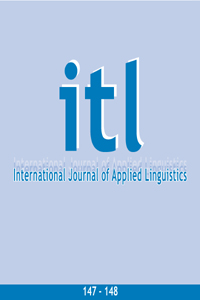 previous article in this issue previous article in this issue | next article in this issue  |

|
Document Details : Title: A Key Means to Signaling the Evaluative Component in Storytelling Subtitle: The Sentential Representation of Variable Temporal Passage Author(s): TICKOO, Asha Journal: ITL - International Journal of Applied Linguistics Volume: 150 Date: 2005 Pages: 19-46 DOI: 10.2143/ITL.150.0.2004371 Abstract : Though scholars interested in ESL writing pedagogy would like to believe otherwise, most students in high school and college English language courses are not, in fact, required to write academic prose. Rather they are, by and large, asked to write the personal narrative, a genre of prose similar in very fundamental way to the prototype story. The personal narrative is a challenge because, like the prototype story, it is more than a mere report of events in past time. It is a report of events in past time infused with, what has been identified as the defining component of the story, the evaluative component. The evaluative component enables the writer to represent the dissimilar impact of successive narrative events to the developing theme. In this paper, I will address one significant means of signaling the dissimilar impact of successive narrative events, and the problems learners have with its proper use. In the prototype personal narrative/story, the temporal movement effected by successive narratuve events is not the same. There is non-uniformity in the pace and quality, of the temporal movement, from one narrative event to the next. I will provide a description of the sentence-level mode of implementing this particular means of evaluationin the prose of skilled writers and examine a representative sample of ESL data to show the difficulty learners face with its implementation. This understanding will be used to generate suggestions for pedagogy which specifically address this area of difficulty. |
